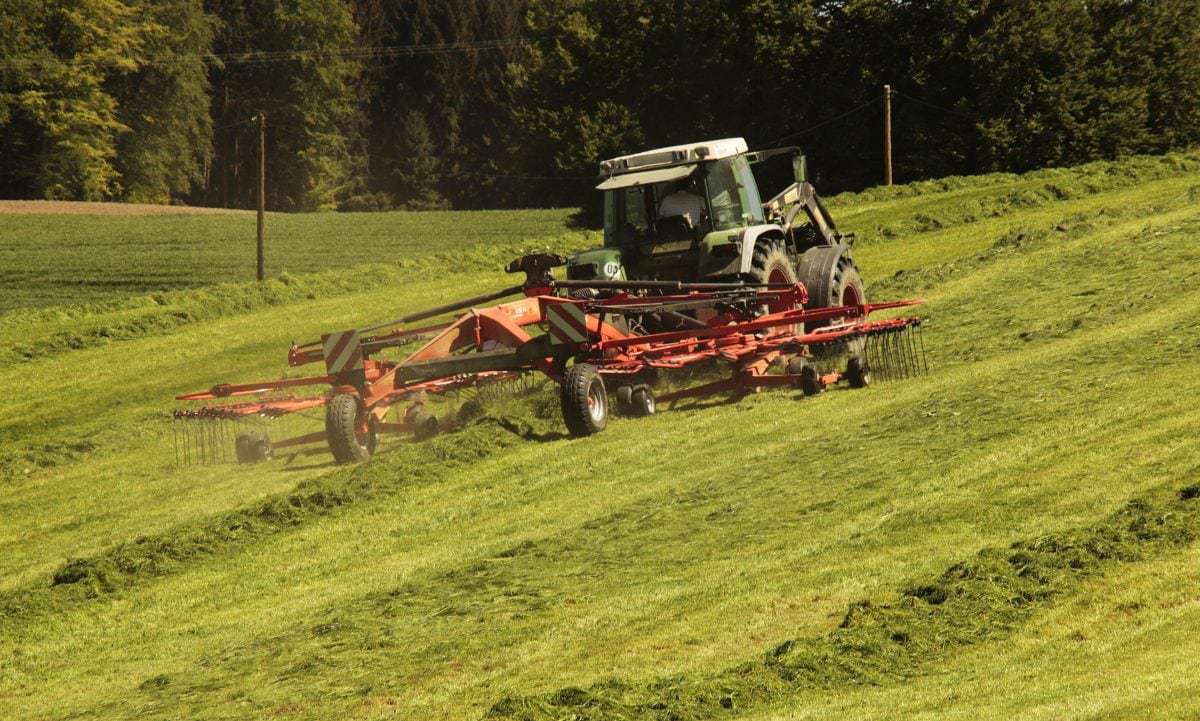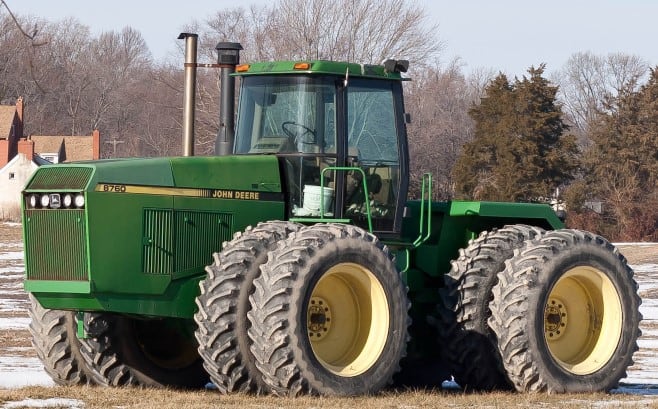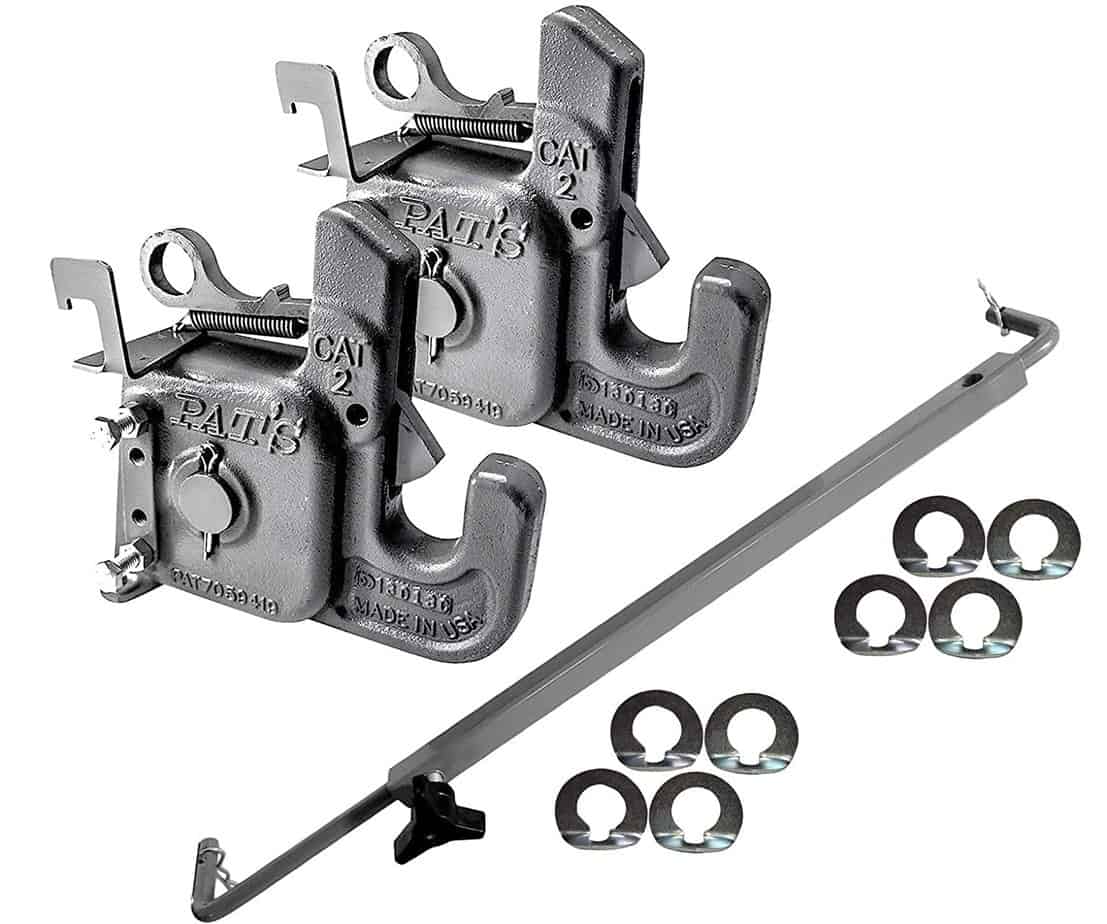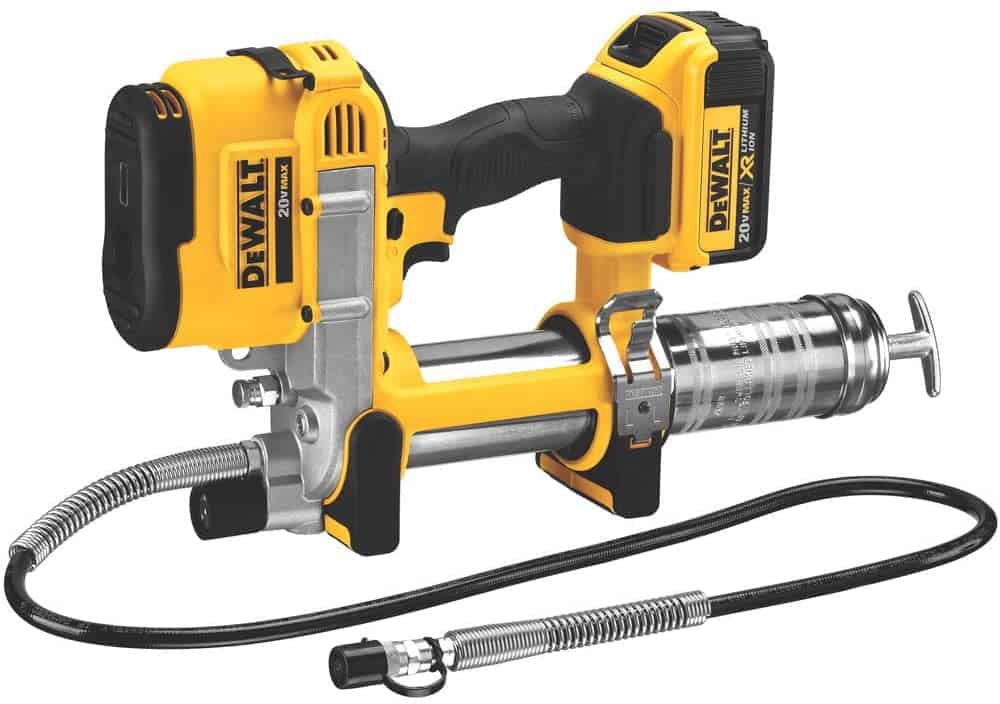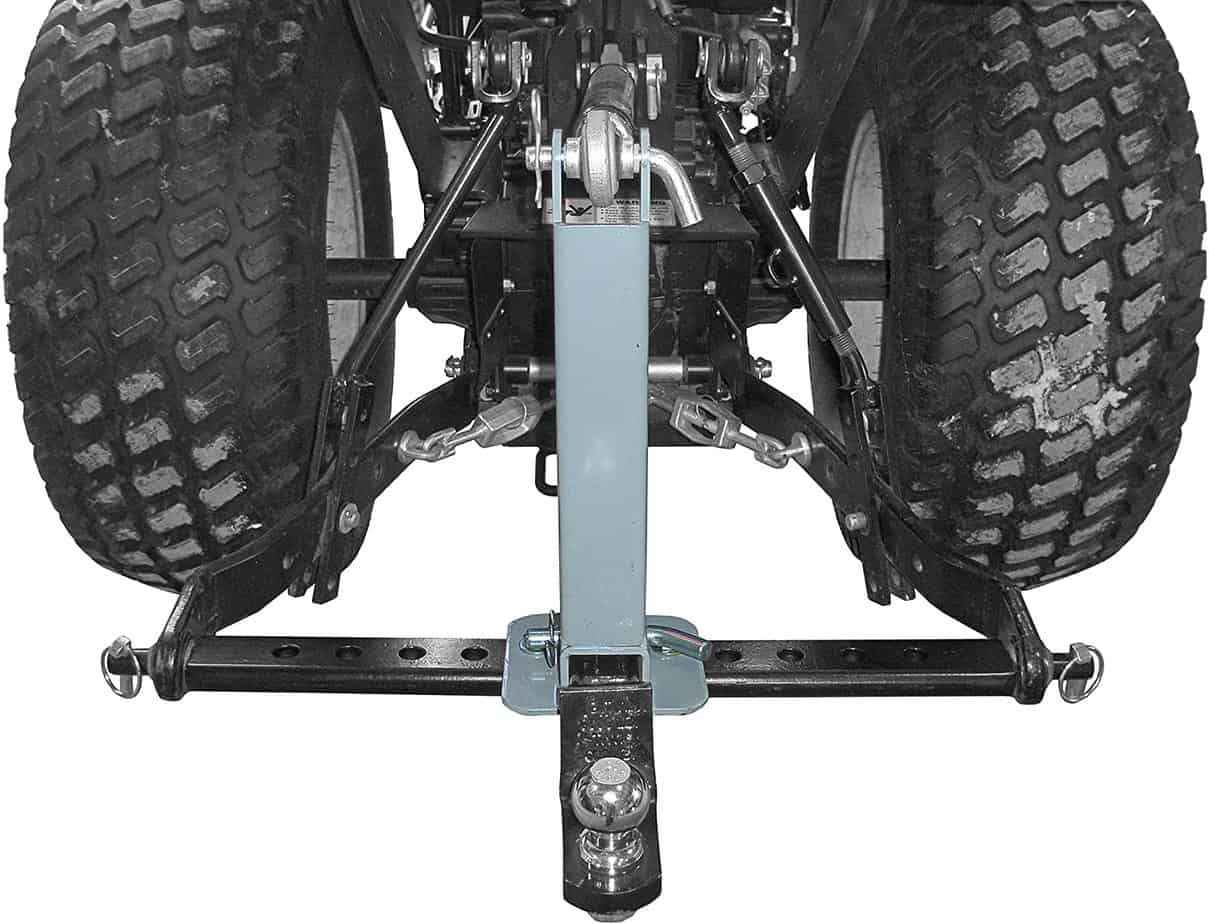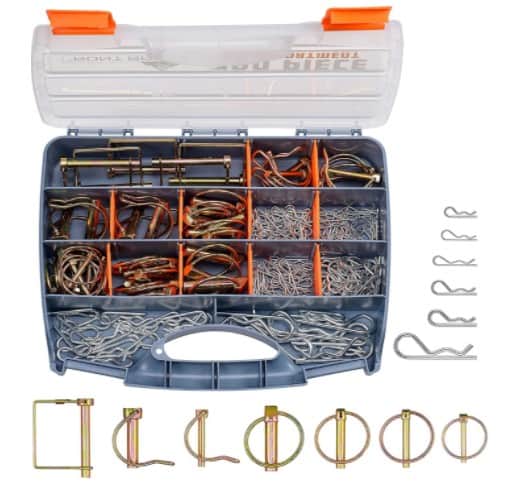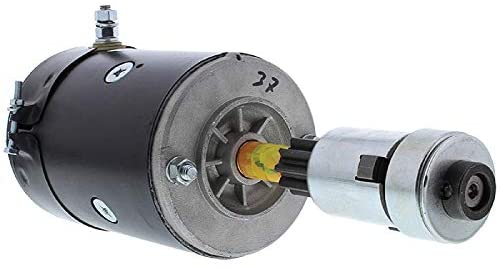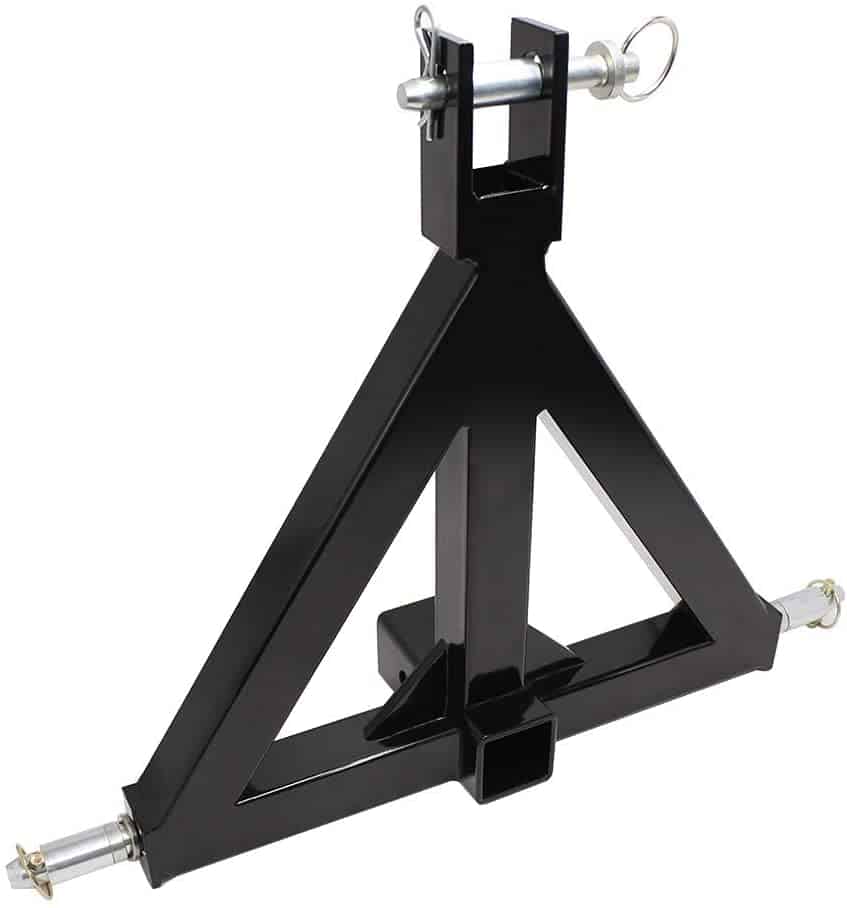- Common John Deere 1025r Problems - April 18, 2022
If you are a farmer looking for a complete guide to tractor parts in detail, your research ends here. We are giving you in-depth and well-analyzed details concerning the main parts of a tractor.
As a farmer, You definitely know about your tractor. We admit it is essential to know the general facts and information about tractors and the elements that make them. This is why we have compiled this article to enrich you with this priceless information.
Main Parts Of A Tractor
A tractor composes of several components that include
- Engine
- Clutch
- Differential Unit
- Final drive
- Rear wheels and Front wheels
- Steering mechanisms
- Hydraulic controls and hitch systems
- Brakes
- Take off Unit
- Control panel
We shall discuss each of the components listed above to ensure that we understand the whole tractor body by the end of this article.
Engine
Most tractors produced in this error are powered by the internal combustion engine that uses gasoline, kerosene, liquefied petroleum gas, or diesel. Through the propeller shaft, these engines can transmit power to the gearbox at eight to ten speeds.
This happens through the differential gear to the two rear wheels. We have several companies that offer engine and engine parts at friendly prices. There are two types of tractor engines, and they include the steam engine and diesel engine.
The steam engine is said to have created change and some other additions in terms of technology. It uses the technology of expansion or condensation of steam to generate power. On the other hand, diesel engines use internal combustion mechanisms were through the compression of air, heat is produced and in return used to ignite the fuel. The following are parts of the tractor engine.
Connecting rod and the crankshaft
Connecting rod and the crankshaft are part of a tractor’s engine in the piston to the crankshaft.
Spark plug
A spark plug is a tractor engine that uses a gasoline engine to ignite the fuel and bring about a controlled expansion in the engine through the spark. The spark plug’s primary function is to supply the spark required to ignite the air and fuel mixture.
Valves
The fuels enter the combustion chamber through the valves and allow the exhaust out through the same valve. It is always closed unless when in action.
Piston and the piston rings
A piston is a cylindrical metallic piece found inside the engine’s cylinder, while piston rings are located between the cylinder and the piston. The function performed by the piston and the piston rings is to seal the space and ensure fuel and air mixture is on one side, and prevent the medicine from leaking into the sumps.
Sumps
Sumps surround the crankshaft Containing some amount of fuel.
Clutch
A clutch is that part of the tractor used to transmit rotation that can either be engaged or disengaged and is mainly useful in devices using two rotating shafts.
One shaft is literally attached to a motor in such devices, and the other shaft drives other devices with the process. Notably, a clutch connects two shafts to either lock them together and spin at the same rate or decouple and spin them at a different pace. We have different types of clutches, and we shall be looking at each at a time.
Friction clutch
This is a clutch where one part can turn the other using the friction between them. The friction clutch makes the gripping action by utilizing the force between the two surfaces, and the two bodies are pressed together for power transmission. When starting the engine, the clutch pedal is pressed.
Once the engine starts, the pedal is released slowly while increasing pressure gradually on the friction surface till slip is wholly eliminated.
With that, the drive place is firmly gripped to the drive plate. One point worth noting is that the transmission of power solely relies on the material used for friction members and the force’s extent to press them together.
This is the most type of clutch in a tractor, and even nowadays, they are common in many tractor models. Friction clutch may be further subdivided into three categories: the single-plate grip, multiple clutches, and the cone clutch.
Single Plate Clutch
This clutch type is where a single thick plate is covered with friction material on both sides. A spring-loaded pressure plate presses the clutch plate against the flywheel of the engine. Springs situated between the plate and the housing produce pressure that holds the friction surface in contact.
After the pedal of the clutch is released, the release finger pushes back the pressure plate. As a result, the pressure is removed from the clutch plate, which causes the disengagement of the clutch with the clutch stop rotating, but the flywheel continues rotating.
The moment the clutch pedal is free, the pressure plate makes them turn together as one Unit. Consequently, the power produced is transmitted to the gearbox for onward transmission to the rear wheels. Such a type of tractor clutch is operated by foot.
Multiple Plate Clutch
This is also called a multiple disk clutch and can have two disks or three disks. The difference between the single-plate clutch and the multiple plate clutches is the multiple plate clutches’ flywheel rims do not act as a friction surface.
Multiple plate clutches also have some thin metal plates, arranged alternately as driving members and driven members. In numerous plate clutches, one set of a metal plate is attached to the flywheel and the other group to the clutch shift. When the plates are squeezed together, the clutch is engaged. The power is transmitted from the engine to the gearbox for onward power transmission to the rear wheel.
Cone clutch
Cone clutch is another clutch with the metal disk as the main cone clutch assembly with a conical peripheral surface engaging with a similarly shaped recess in the flywheel.
The ordinary brake lining and the heavy spring placed behind the cone exert enough pressure to guarantee its positive engagement.
A sleeve fastened to the cone and extending back is bolted to the transmission shaft bringing about engagement when the gears are connected with the clutch’s engine. One can cause disengagements by sliding the cone and the sleeve backward on the flywheel shaft extension against the spring pressure.
Dog clutch
The dog is a simple clutch with square jaws, used to drive a shift in either direction. This kind of clutch is mostly used in power tillers. It combines two rotating shafts or other rotating components not by friction but by interference.
Dog clutch is designed with two parts where one part pushes the other, causing both to rotate in the same direction and never slip. This clutch is preferable where slip is not needed, making the Dog clutch unaffected by the wear like the friction clutches. It is applicable in the manual automotive transmission for locking the different gears to the rotating input and output.
Fluid coupling
Fluid coupling consists of driving and the driven member, making it radical impeller vanes caged in a suitable house. The fluid coupling clutch has a coupler mounted on the engine crankshaft, and that 3/4th is filled with ideal oil. To make the shaft oil-tight, a spring-loaded sealing ring is provided.
At the crankshaft rotations, oil is thrown out by the centrifugal force directly from the middle to the outermost edge of the impeller leading to increased velocity and oil energy. The oil then gets into the runner at the outer part and flows towards the center, making the runner unit rotate.
Provided the impeller and the runner rotate at different speeds, the oil will continue to circulate uniformly. However, when the impeller and the runner start running simultaneously, the oil circulation stops. Coupling is not attributed to the increased torque applied but only transmits the torque in a uniform manner.
A fluid coupling is associated with three main functions that included
- Absorption of shock and vibration
- Smooth starting
- Easy operation
Differential Unit
This is the gears’ arrangement to allow the tractor’s rear wheels to offer a slower rotation than the other. This is clearly seen when a tractor turns on a curved path where one wheel is to go more distance than the other. The inner wheel during the turning requires lesser energy than the outer wheel.
The differential unit solely facilitates this process. A shaft output from the gearbox provides a bevel pinion at the end of the shaft. This differential unit has several parts: differential casing, differential pinion, crown wheel, half shaft, and bevel gear.
The differential unit is attached to the crown wheel, but they can freely rotate on their own. Additionally, there are two bevel gears in mesh with differential pinion.
One bevel pinion means two or more bevel pinions in mesh with differential pinion where there are one bevel pinion and the end of every half-shaft that goes to the tractor’s rear wheel. This way, instead of having the crown wheel being keyed straight to a solid shaft between the wheels, the drive is taken back from the indirect route via differential casing, differential opinion, and a half tractor’s half shaft.
If a tractor moves on a straight path, the differential pinion does not rotate on the sub shaft relatively solid with the differential casing. In such a scenario, they drive the bevel gear at the same speed and in the same direction.
Final Drive
A final drive is a unit responsible for reducing gears between the differential and the drive wheels. It transmits power to the rear axle and the wheels. The tractor’s rear wheels are not directly linked to the half shaft, but the drive goes through a pair of spur gears.
Each half shaft discontinues in a small gear meshing with larger gears known as the bull gear. Bull gear is a gear found on the post carrying the tractor rear wheel. A device is commonly known as the final drive mechanism for speed reduction ideal for the tractor rear wheel.
Rear Wheels vs Front Small Wheels
A tractor has two pairs on the wheel where the small pair is in front while the other large pair is in the rear. The two pairs are strategically located, and they have many reasons why. One of the reasons why the rear wheel is large is for weight distribution.
It means when the wheel has to sink into the ground many when the ground is wet, it has to sink dipper for it to get stuck. This would only happen when the wheel sinks almost halfway between the rim centers and the part of the tire in contact with the ground.
Besides, the engine of a tractor is located in front. Definitely, this causes the tractor’s front to be heavier than the rear part, and in many tractor models, we have an attachment in front, adding weight.
Consequently, for weight distribution, tractor rear wheels are large to balance or distribute. Another reason why the tractor has a larger rear wheel is for ground clearance. A tractor is designed so that the non-functional bottom part is further off the ground, making it capable of passing over the large object without contact or damage.
Brakes
Brakes are an essential part not only in a tractor but in other automotive devices. They help in slowing down or stopping a tractor in motion. Besides, it helps prevent a stationary tractor from moving. Additionally, brakes also help take sharp turns during farm applications by applying differential brakes on the two rear wheels.
The most common type of brakes is friction brakes. They work through changing the kinetic energy of a moving tractor into heat under friction between rotating components and the stationary components mechanically to come into contact with the rotating parts.
When the inert material lined with hard friction material comes into contact with the rotating elements, braking occurs accordingly.
Take Off Unit
This is another essential part of a tractor used to provide power to an attached or separate machine. Take Off Unit allows the implements to draw or get power from the engine of a tractor effectively.
Notably, Power-take off Unit and its related parts have mainly been associated with the most significant percentage of farm accidents and injuries, according to a report by the health and safety executive united kingdom.
When a small piece of cloth is in touch with the spinning part, it is pulled around the part. The fabric and the person wearing it are pulled into the shaft leading to an accident or even death.
Some of the implement use plastic as part of them purposely to prevent people from such accidents. Even with the plastic guards, people are urged to exercise caution when dealing with tractors connected with the power take-off unit.
Control Panel
The Control panel is a part of the tractor used to facilitate the driving engine when carrying a heavy load. It consists of the braking used to either stop or slows down the tractor accordingly. This ensures a tractor would not quickly tumble and power is stable.
Hitch
The hitch is that part of a tractor that usually makes it easier to lift and lower implement, attachments, and heavy loads. It is specifically crucial in a situation where you want to move things or items from one place to another.
Best Part Of A Tractor
Category 2 Pat’s Easy Change w/ Stabilizer Bar – Best Quick-Hitch System On The Market
This is a three quick-change hitch used in almost all implements, including those that are not quick hitch compatible. Category type 2-Application Hitch allows you to attach implements of a tractor without unnecessarily lifting, and the top links remain flexibly active for mowers, bush hogs, and other implements.
It also tops linkable to the flex and float as intended for rotary cutters, and finish mowers attach heavy implements easily.
You will find no need for lifting on the back strain patented stabilizing system and comes with spring-loaded hardware included. Besides, this particular system comes with a set of two quick hitches that are easy to install and require no modification to your tractor.
Feature And Specifications
- Category 2-1 quick hitch
- Easy change system
- It comes with a stabilizer bar and hardware kit
- Fits lift arm 2 inches t 4-1/4 inches tall
- Pat’s premium 3-point quick hitch
- 221ST model
Pros
- Easy to install
- Great value for money
- Strong and durable
- Easy to use
- Affordable and pocket friendly
Cons
- It May prove challenging to find the right angle between the tractor and the implement
DEWALT 20V MAX Cordless Grease Gun (DCGG571M1), Yellow, V11 Torque
This particular grease gun features a robust and powerful motor that is behind its practical applications. It can give you up to 10,000 maximum PSI powering through clogged grease fittings.
It can push up to 5.0 OZ per minute high glow application with a high volume pump, allowing up to 16 cartridges per charge with a single battery. It also comes with a variable speed trigger offering precise control of the grease flow.
You can reach the hard-to-access grease fittings with the help of the extra-long and flexible hose. It is also fitted with LED lights for allocating hard to grease fitting when there is no sufficient light.
DEWALT grease gun also features an innovative pump filter screen that ensures dirt and other contaminants do not clog the pump mechanism. It is also integrated with a no-mar foot design that allows users to rest tools on flat surfaces and an air bleeder valve assisting in pumping priming after changing the cartridge.
Features And Specifications
- Powerful motor delivering up to 10,000 maximum PSI
- High volume pump and high flow applications
- Extended run up to 16 cartridges per charge
- Enhanced flexibility with LED lights helping hard to see grease fittings
- Keeps dirt off with the innovative pump filters
Pros
- Better and prolonged life
- Easy to use
- Great value for money
- Giftable product
- Long hose stretch well and virtually.
- Decent battery life
- Lightweight designed
Cons
- Gun may jump up if grease has dried up
Field Tuff FTF-03DBRM Tractor Drawbar Stabilizer/Trailer Mover
This particular drawbar stabilizer or trailer mower is designed to keep your drawbar stable. This eliminates any chances of a dangerous saying of your 3 point assembly, making it easier to move your trailer. It is made of a heavy-duty gauge that can bolt to any 3 –3-point drawbar with 2 inches hole centers.
Besides, it has a capacity of 200 lbs making it an ideal stabilizer for 3 point assembly and perfect for moving trailers. Weighing 9.5 lbs, this field tuff product makes it easier to attach implements by merely stabilizing the drawbar.
It can fit on tractors in the category between 0and 1 and can be compatible with 2 inches square trailer hitch style receivers. The tractor drawbar stabilizer made of high-quality material is durable and long-lasting and is rust-resistant with the powder coat made of a successful tuff product.
Features And Specifications
- Keep your drawbar stable and make it easier to move a trailer
- Torque weighs a capacity of 200 lbs
- It can fit in a category between 0 and 1 and can bolt to any 3 points.
- Durable and reliable construction of ¼ inches
- Heavy-duty and high-quality steel, which is rust resistance, powder coat finish
- Weighs 9.5 lbs
- Innovative design improves stability and makes it easy to move trailers.
- It comes with a one-year limited manufacturer warranty
Pros
- Easy to install and use
- Great value for money invested.
- Decent for the price
- Works quite well
Cons
- May call for some modifications
Front Range – 190Pcs Heavy Duty Hitch Linch and PTO Pins for Trailers Tractors Trucks Towing Mowing
You will never find it challenging to attach trailers or implements with this 190 pieces pin assortment. It is a heavy-duty pin assortment for tractors, trailers, mowers, trucks, 3 points, PTOs, and parts.
When you buy, you can expect the following in the kit: square PTO pins, lynch pins and cotter pins, and 190 pieces of different sizes for different and various applications. It is made of zinc-plated steel pins for the prevention of rust and corrosion. You can also carry it around as it comes with removable dividers for easy organization.
Features And Specifications
- Decadent duty assortment for different applications
- Kit includes square PTO pins, Lyn pins, and cotter pins
- Includes 190 pieces of various sizes for many applications
- Zinc plated for rust and corrosion prevention
- Heavy duty and portable
Pros
- Great value for money
- Easy to remove
- Strong and durable
- Portable
- Versatile
Cons
- Relatively Expensive
DB Electrical SFD0145 New Starter & Drive Combo Compatible with/Replacement for Tractor
DB electrical will let you enjoy a time engine, consistently following the unique high quality and uncompromising super material choice coupled with unmatched craftsmanship.
With this particular device, you will enjoy endless benefits, including high and effective performance, without forgetting the efficiency. If you want operations with no mistakes and errors, you don’t have any other option but the DB electrical.
Features And Specifications
- High-quality magnets or field coils
- Sealed bearing and the casing locking out moisture and grime
- Copper and nickel contacts instead of cheaper aluminum or steel
- Quality brushes and bushings
- Proper fit design for perfect fitment with every other installation
Pros
- Easy to install
- Great value for money
- Deliver more torque and fast star
- Durable and long-lasting
- Lockout moisture and grime
Cons
- It May seem pricey in case you want to return it
Hikotor Heavy Duty 3 Point 2 Inch Receiver Drawbar Hitch Adapter Subcompact Trailer
It is always a pleasure when busy in the garden, working around your garden and industrial site but only when you have the right equipment with you.
This will not only make your work efficient but also save you a lot of time and energy. Three-point 2 inches receiver trailer hitch category one tractor tow hitch drawbar is made to be compatible with many standard 2 inches trailer hitches.
Features And Specifications
- Category one lift pins
- Standard 2 inches trailer receiver
- Heavy-duty material for construction
- Includes buttons pins
- Robust and powerful coated finish
- 19 inches height and 26 inches width
Pros
- Heavy-duty construction guarantee durability and long-lasting
- Premiums details including compatible measurements
- Lightweight making it easy to hook
- Excellent and outstanding performance
- Versatile and wide compatibilities
Cons
- Lift arm pins may seem hard to screw as the threads are painted
FAQs
Answer: A four-wheel tractor is a tractor with all four tires of equal size and range in size between 25-45 kw. Regardless of the size, every tire must be ballasted with 60 % of the weight distributed over the front axle and 40% over the rear axle.
Answer: Row crop utility tractor is more the same as the compact tractor except that they are high. The only difference is that the taller tires. Also, they have different rear-end gearing for compensation of the tire height difference.
Answer: Most modern tractors use an internal combustion engine that runs on gasoline, kerosene, or diesel fuel. They transmit their power through the propeller shaft to a gearbox with 8 to 20 speeds via a different gear to the two large rear wheels.
Answer: Not really. If you can maintain your tractor the right way and up to the standard, you can use it even up to 4500 to 5000 hours. Most of the second-hand tractors we get in the market are traded at the 1000 hour mark. This means the majority of these second-hand tractors have their life in front of them.
Conclusion
Having given you detailed information about a tractor’s parts and their functions and how they work, we believe that you have found it useful and above all important.
There are many other parts of a tractor with increased size and power. The main ones include Engine, Clutch, Differential unit, Final drive, Rear wheels, Front wheels, Steering mechanisms, Hydraulic controls, and hitch systems, Brakes, Takeoff unit, and Control panel.
According to individual taste and preference, a farmer who wants to buy tractor parts or sell their tractors can do that quickly and at the best prices.


